Our ‘Game On Mole’ campaign is more important than ever. The number of new melanoma patients attending Melanoma Institute Australia for specialist treatment has dropped to a 12-year low, sparking fears COVID lockdowns may have deterred patients from seeking potentially life-saving medical treatment.
Figures released today by Melanoma Institute Australia, the world’s largest treatment and research institute with a single focus on melanoma and complex skin cancer, show the number of new patients attending for treatment dropped by 18% in 2020 and likely 20% in 2021, compared to pre-pandemic rates (2019).
These are the lowest numbers of new patients coming to Melanoma Institute Australia since 2009, a year before its world-class specialist treatment facility, The Poche Centre, opened in 2010.
With early detection vital to save lives from melanoma, there are fears this drop in new patients may result in a spike in lives lost to the disease in the coming few years.
‘We don’t think this drop in new patients means less Australians actually have melanoma, it just means that COVID has delayed them seeking medical advice and being diagnosed,’ said Professor Richard Scolyer AO, Co-Medical Director of Melanoma Institute Australia. ‘That delay in diagnosis and treatment can be the difference between life and death.’
‘If caught early 90% of melanomas can be cured with surgery alone, but if left undetected, melanoma can quickly spread to organs including the lungs, liver and brain,’ added MIA Co-Medical Director Professor Georgina Long AO.
‘We have very real concerns that the coming year will see an influx of melanoma patients being diagnosed with more advanced stage disease, which means a poorer prognosis.’
In 2019, 2,015 new patients attended Melanoma Institute Australia’s treatment centre in Sydney for specialist care, with access to the cutting-edge multi-disciplinary team and clinical trials. In 2020, this number dropped by 363 to 1,652 (18% reduction), the lowest number of new patients to MIA in more than a decade.
New patient numbers for the first nine months of 2021 are lower again (1,169 as of 30 September), indicating the annual drop on 2019 pre-COVID patient numbers will surpass 20%.
The COVID pandemic, and associated lockdown difficulties coupled with a reluctance of patients to seek medical advice or have regular skin checks, are the most likely causes for this drop in patient numbers.
Australia has the highest melanoma rates in the world, with one person dying every 6 hours from the disease. Melanoma is also the most common cancer in 20 to 39-year-olds. The first sign of melanoma is often a new or changing spot or mole on the skin.
Following this concerning drop in patient numbers, Melanoma Institute Australia has moved quickly to bring forward the launch of its cheeky and uniquely Aussie awareness campaign, ‘Game On Mole’, now in its third year. The campaign uses slogan t-shirts to start conversations about melanoma early detection, and urges Australians to take photos of their skin and monitor for any changes.
25-year-old model Oceana Strachan, who was diagnosed with melanoma in April this year, is the face of this year’s ‘Game On Mole’ campaign, and is urging young Australians in particular to take action.
‘I have olive skin and naively thought if I got sunburnt, I would deal with the consequences much later in life,’ Oceana said. ‘But then I discovered an unusual looking mole on my leg and luckily, in the midst of the pandemic, decided to go the doctor to get it checked. I was shocked when I was diagnosed with melanoma and ended up at Melanoma Institute Australia and having surgery.’
Oceana shared her very personal melanoma diagnosis with her hundreds of thousands of followers on Instagram, in the hope her story could help promote sun-safe behaviour and early detection of the disease.
‘I am so thankful that I didn’t delay seeking treatment. And that’s why I’m proudly supporting ‘Game On Mole’ – if just one person hears my story, and checks their skin and seeks medical advice, then it will be worth it. These are life-saving conversations that all of Australia desperately needs to have,’ she said.
‘This campaign is more important than ever before,’ added Professor Scolyer. ‘We know that COVID has resulted in melanoma patients being out there who just haven’t been diagnosed yet, and it is critical that they hear this life-saving message.’
‘That’s why we have urgently brought the campaign forward,’ said Professor Long. ‘Early diagnosis is key, so please check your skin and proudly wear a ‘Game On Mole’ t-shirt to start conversations that could save a loved ones’ life.’
This year’s ‘Game On Mole’ campaign is in collaboration with t-shirt designer Everything’s Good, which is donating all profits from t-shirt sales to support ongoing research at Melanoma Institute Australia.
To join the campaign and buy the ‘Game On Mole’ t-shirt, go to www.gameonmole.com.au
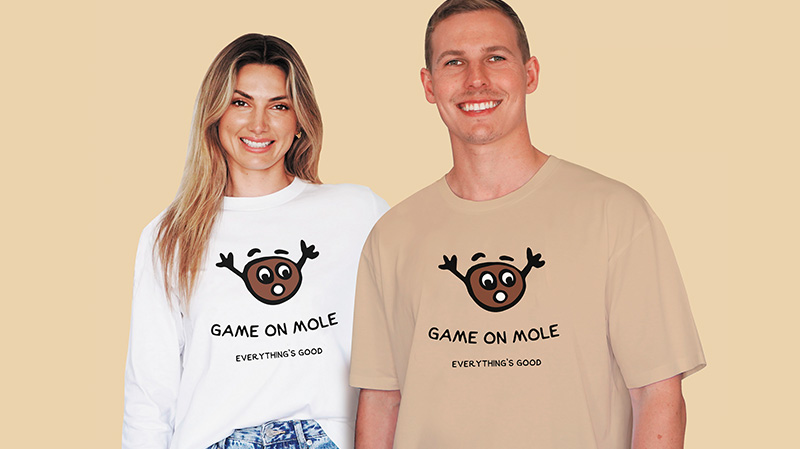

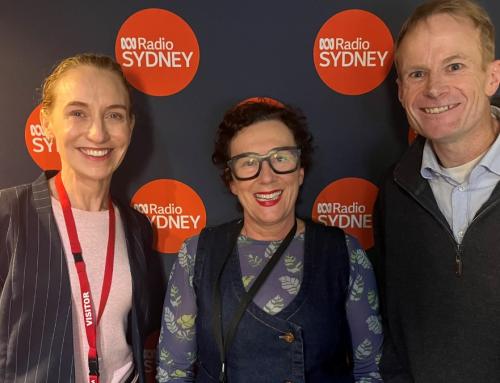
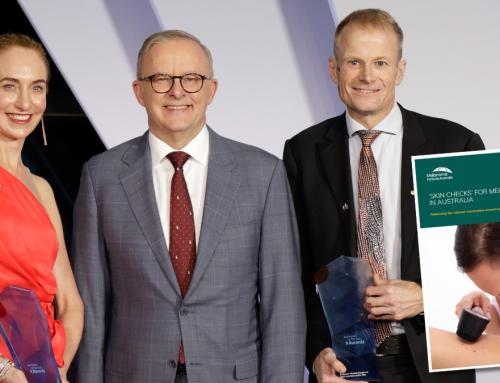
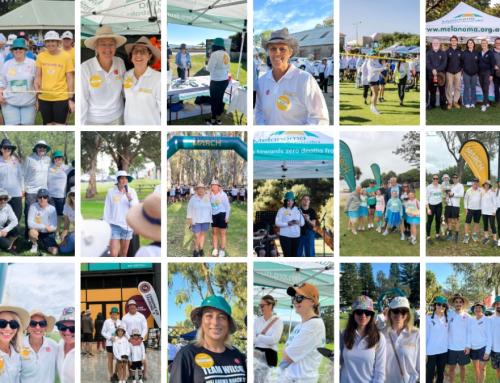
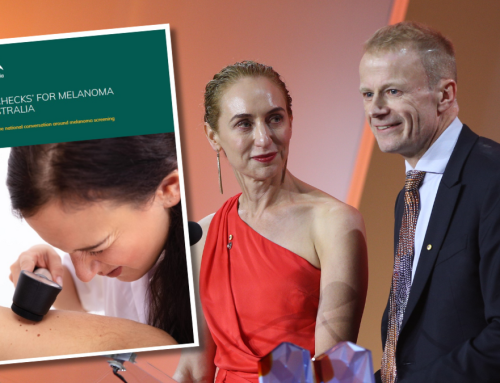
Leave A Comment